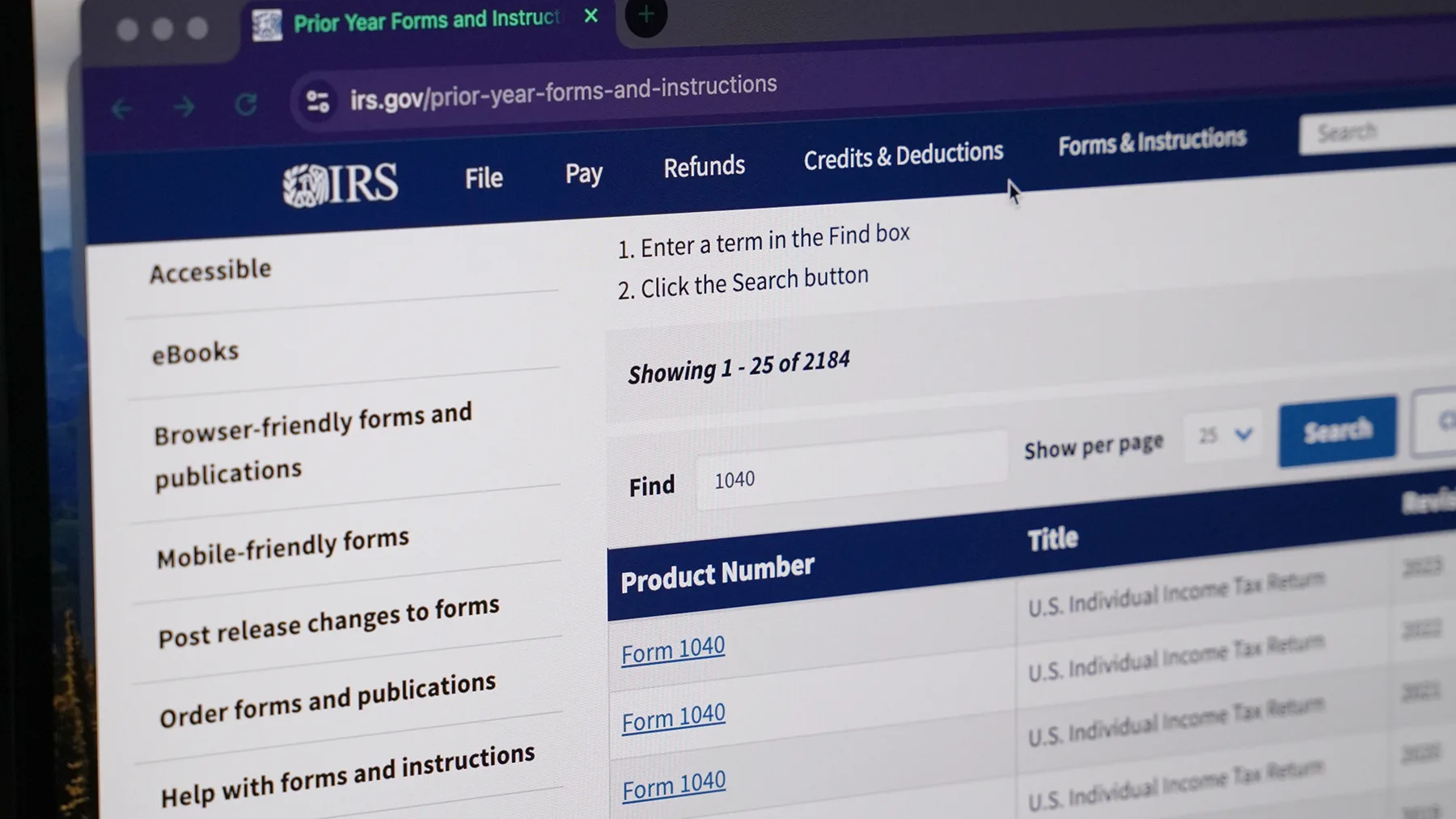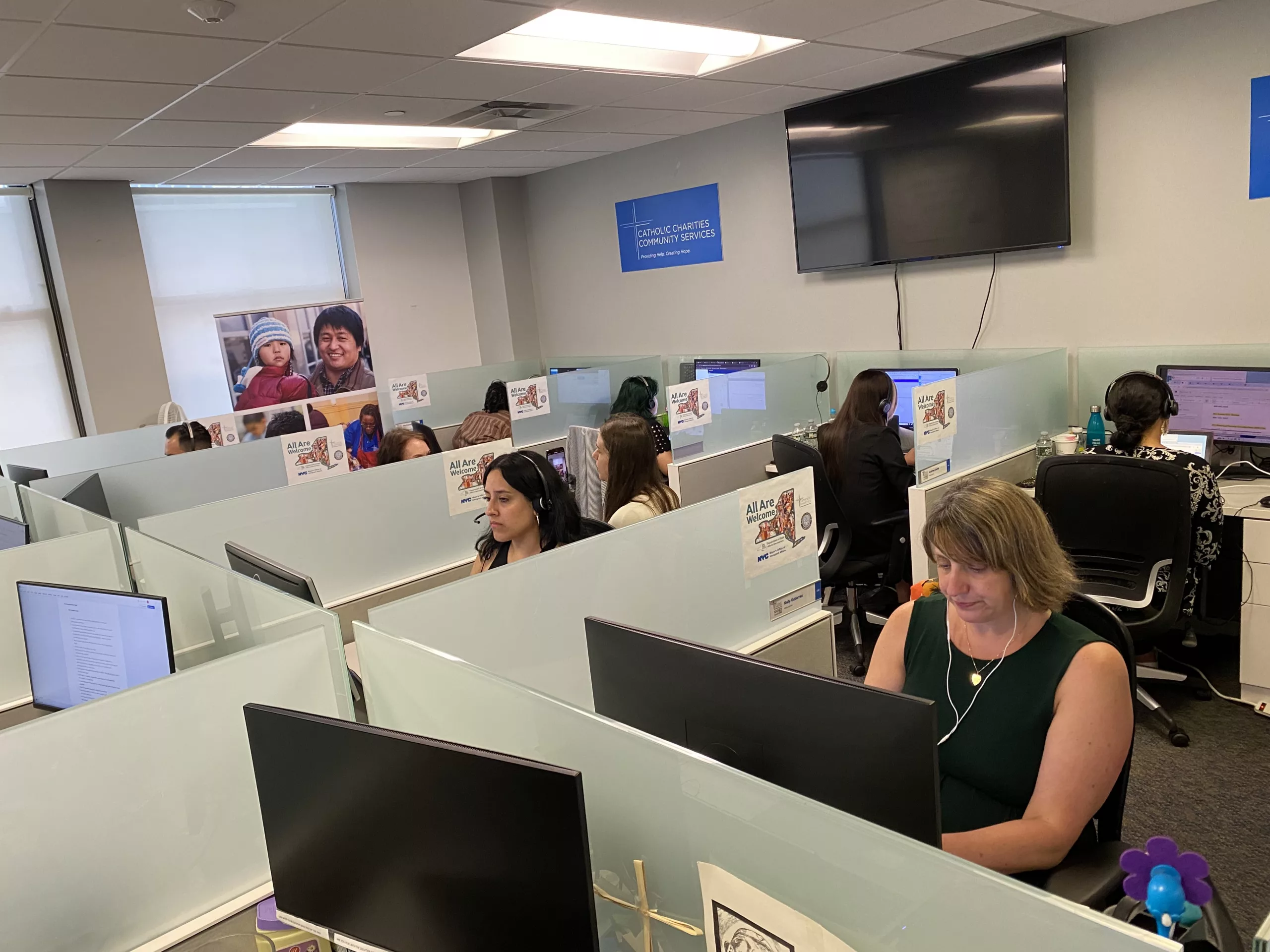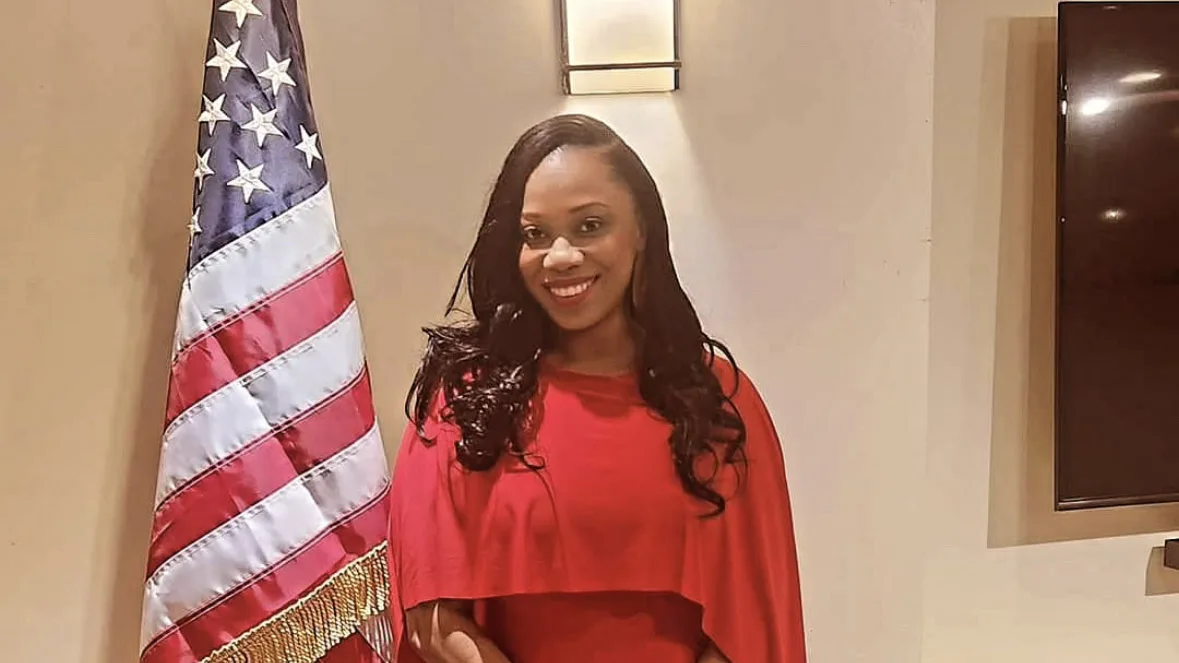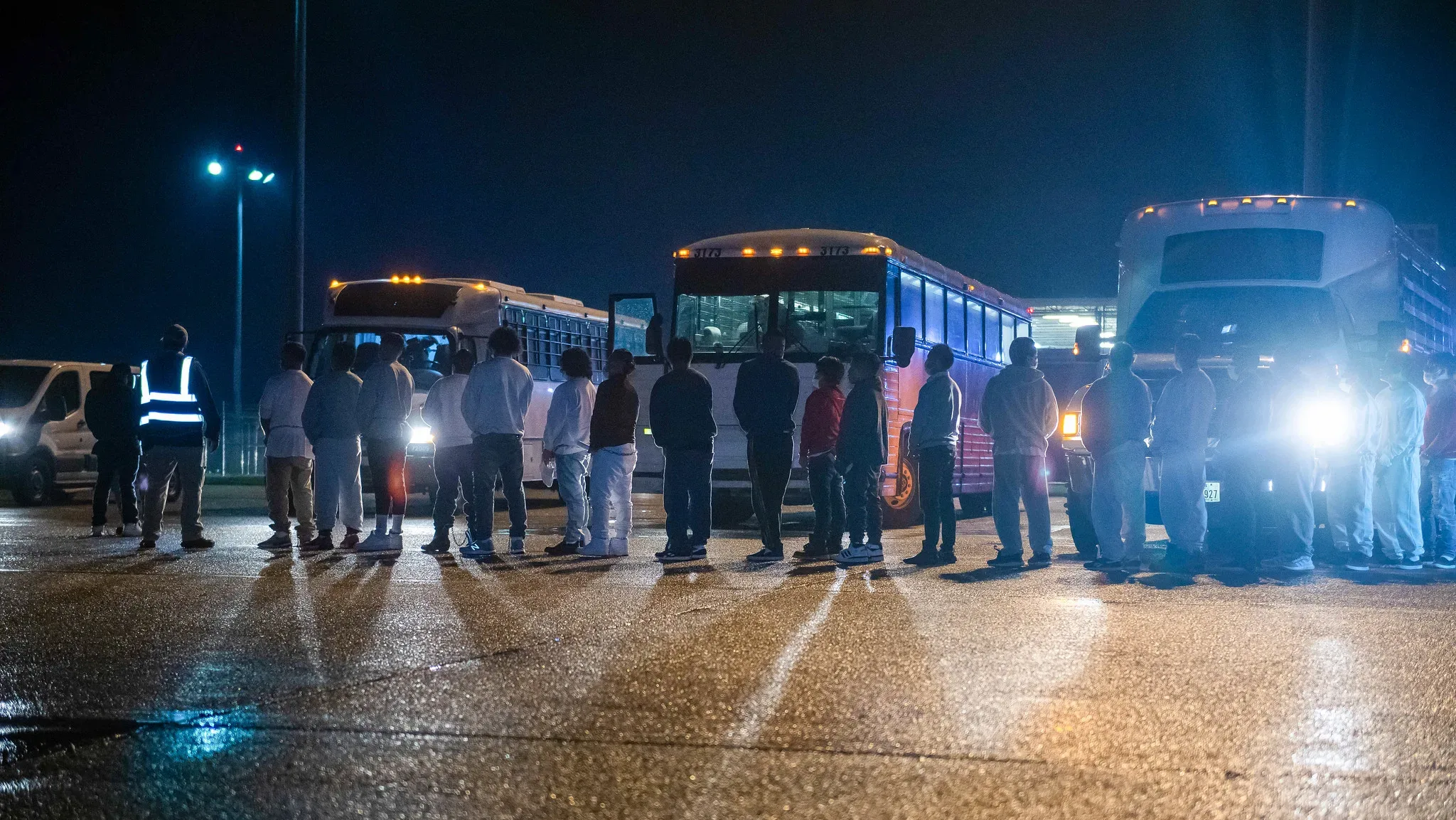Sheriff Craig Apple of Albany County heard there was an email being passed around the New York State Sheriff’s Association from the Department of Homeland Security a few weeks ago. The federal government was looking for a county jail in New York to hold hundreds of immigrant detainees. Apple volunteered.
Soon, hundreds of detainees began arriving at the Albany County Jail. They were flown in from around the country. Apple opted to take the immigrants as he thought they would be treated better in his custody.
“You see some of these horrifying photos of tent cities,” Apple said. “People with mylar blankets and penned in cages.”
The transfer has led to a mobilization of dozens of volunteer lawyers traveling to the jail and working in shifts to help the unprecedented number of detainees. Volunteer lawyers say Apple has been extremely open in providing them access to the immigrants.
A 20-minute drive away is the Rensselaer County Jail where Sheriff Patrick Russo is in charge. Russo’s views on immigration differ from his counterpart Apple – he’s entered into a controversial 287g agreement with ICE that deputizes his staff to enforce immigration law.
Their facilities lie 10 miles apart, yet for immigrants detained at those two county jails, which building they end up in can radically change their chances of staying in the country. Immigrants have no choice where they end up, and the two sheriffs’ radically different policies can change the course of their lives.
ICE uses contracts signed between counties and the U.S. Marshals Service to detain immigrants in local jails. There are close to 50 county jails in New York State that have this agreement, called an Intergovernmental Service Agreement, however, it’s unclear how often it’s used. In exchange, they’re paid a daily rate per detainee. According to data made public by the National Immigrant Justice Center, Albany receives $119.50 per day for each detainee, while Rensselaer receives $97 per day.
“It’s very unequal,” said Vanessa H. Merton, director of the Immigration Justice Clinic at Pace Law School in White Plains, New York. “That is perhaps one of the most horrifying parts of it.”
“Depending on where [ICE] put you there’s a broad variation in access to representation and to other tools as well,” she added.
For instance, Sheriff Apple allows immigration lawyers into the jail to provide counsel to ICE detainees. It’s the result of a four or five-year-old agreement with the Albany Law School Immigration Law Clinic.
Sarah Rogerson, the director of the Immigration Law Clinic, negotiated the arrangement and has been providing legal counsel to immigrants held there since. Apple gives her a heads-up when he has immigrant detainees so they can come and provide counsel.
“We don’t have to treat people like animals and herd them around,” Apple told Documented in his office at the jail.
Sheriff Russo, on the other hand, told Documented, that arranging lawyers to help immigrants and providing them access is not his job.
“They’re treated like any other inmate,” Russo said in a phone interview, about detainees he receives from ICE.
At Rensselaer County Jail, immigrant detainees are given a handbook on how to contact the public defender who could assist them, and then they’re placed in general population with other inmates.
Over the past year, Russo says he’s accepted a “few” ICE detainees but lawyers in the area who represent immigrants before deportation proceedings have never represented immigrants held in his custody.
“We have zero transparency about what’s going on inside [of Rensselaer],” said Rogerson. “We have no idea if people are being transferred there, what they’re doing with them or whether or not they have access to counsel. That has been a persistent problem.”
“Absolutely everything is at the sheriff’s discretion,” said Karen Murtagh, executive director of Prison Legal Services, which contracts with the Vera Institute to defend immigrants held in different county jails in the area.
Russo’s jail accepts immigrants who have been picked up in the interior by ICE and they are transferred there, while most of the hundreds of immigrants who are currently being held at Albany County Jail are asylum seekers who were detained at the border.
For the latest surge of immigrant detainees transferred to Albany, Sheriff Apple has gone to unprecedented lengths to accommodate their legal needs, according to the lawyers who are working in the jail. For example: He has provided the detainees with free phone calls (including international); lawyers have been given hours of time with the inmates to help prepare them for credible fear interviews in their asylum cases; he’s met dietary needs of Hindu detainees who do not eat beef or are entirely vegetarian; and requested dictionaries and Spanish-language bibles for the inmates.
Camille Mackler, director of immigration legal policy at the New York Immigration Coalition, has been helping to coordinate the volunteer effort at the Albany County Jail. She said her experience with the Albany jail is unlike any correctional facility she has worked with in the past.
“It’s been mind-blowing,” Mackler said. “He’s been incredibly responsive in making sure that it’s the best situation possible.”
“My goal was to take a negative and make it a positive,” said Apple. “Show people that if you’re going to consider them inmates, we can do this humanely.”
Russo said his jail did not have the capacity to take in any of the ICE detainees from the recent surge. Rensselaer has a capacity of 473 beds, while Albany has almost double at 1043 beds.
Apple has said that majority of the inmates he’s received are either asylum seekers or “low-level offenders” as described by ICE. Russo was dubious of this claim.
“Low-level crime? Who knows what that is?” he pondered. “If someone beat you up, it’s a low-level crime to me but it’s not a low-level crime to you.”
Russo’s decision to enter into a 287g agreement with ICE was met with backlash from advocates and immigration lawyers around the state. The agreement will allow his correctional officers to be trained on how to check if immigrants being held at their jail are wanted by ICE and notify them if so. Apple considered signing an agreement last year but decided against it when he learned more about the program, he said.
The agreement has yet to go into effect as one of Russo’s correctional officers is still receiving training on the program. For the sheriff, it was a matter of safety.
“We’re just trying to not allow criminals to go back into the community,” he said. “It’s not safe for the community. In my opinion, it’s not safe for the immigrant community.”
Melanie Trimble, the chapter director of the Capital Region for the New York Civil Liberties Union, argued that 287g agreement will make the community less safe. Undocumented people will now be less likely to report crimes or volunteer to be witnesses, she said.
“People in the community who are not documented feel frightened and are not going to help police solve crimes,” she said. “They’re going to avoid it, which makes communities less safe.”
Felipe De La Hoz contributed reporting to this article.














